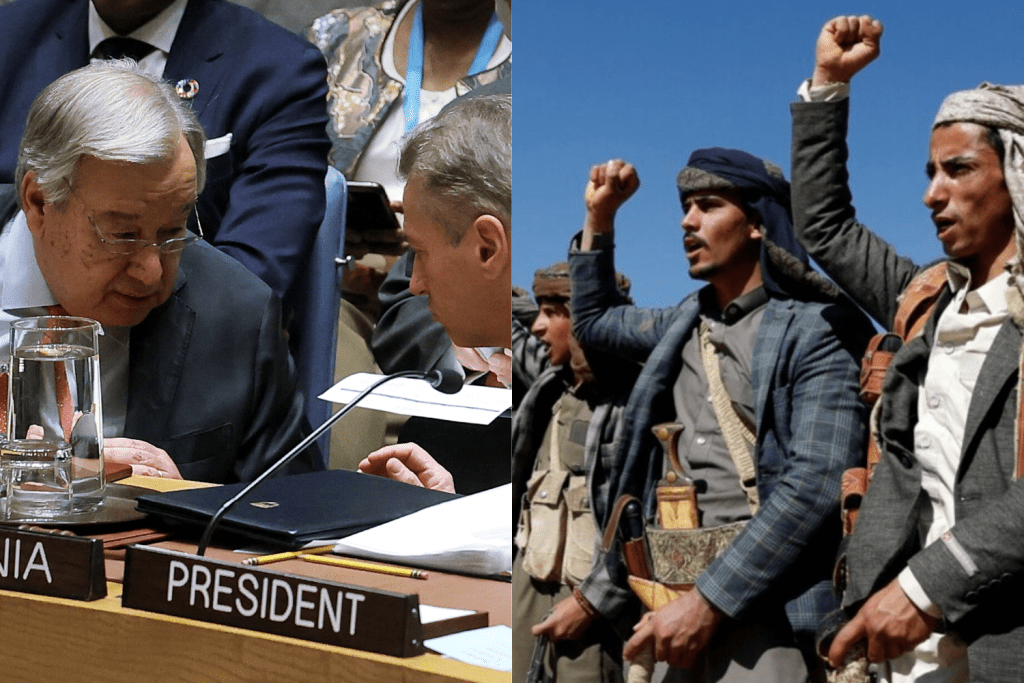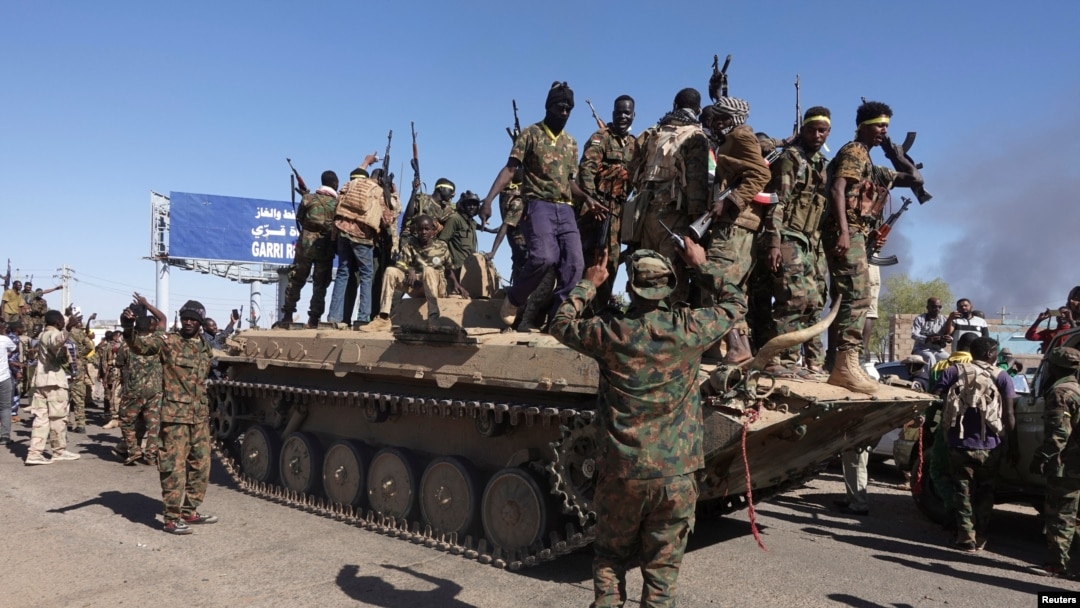Yemen: Houthis arrest 11 UN staff after deadly Israeli strike

The United Nations said Yemen’s Houthis detained at least 11 UN staff during raids on UN offices on August 31st amid a wave of arrests following Israel’s killing of the Houthi prime minister and several senior cabinet members, according to Arab Weekly via AFP on September 1st.
UN Secretary-General Antonio Guterres condemned the detentions, calling for their “immediate and unconditional release.”
“I strongly condemn the arbitrary detentions on 31 August of at least 11 United Nations personnel by the Houthi de facto authorities in Yemen in areas under their control,” he said in a statement. He added: “I further condemn the forced entry into the premises of the World Food Programme, the seizure of UN property, and attempts to enter other UN offices in Sana’a.”
UN envoy to Yemen Hans Grundberg said the detentions, carried out in the Houthi-held cities of Sana’a and Hodeida, followed the forced entry into UN offices and seizure of its property.

He noted that the Houthis are already holding 23 UN personnel, some since 2021, and that previous detentions had included eight UN staff in January 2025. Meanwhile, the Houthis said that arrests made in June 2024 involved “an American-Israeli spy network” allegedly operating under the guise of humanitarian organisations, claims the UN has strongly denied.
The World Food Programme said it was “urgently seeking additional information” from the Houthi authorities, who seized Sanaa in 2014 and now control large parts of Yemen, after one of its staff members had been detained in Sanaa.
A local security source reported that seven World Food Programme (WFP) employees and three UNICEF staff members were arrested during the August 31st raids. The WFP called the detentions “arbitrary” and stressed that the safety and security of personnel is essential to carrying out life-saving humanitarian work. Grundberg described the arrests as a violation of the “fundamental obligation to respect and protect UN personnel’s safety, dignity and ability to perform their essential work in Yemen.”
The raids come after an Israeli strike on August 28th that killed Houthi Prime Minister Ahmed Ghaleb Nasser al-Rahawi and several other senior officials, marking one of the deadliest attacks on the movement’s leadership. Rahawi, largely a figurehead, had served since August 2024.
According to a Houthi health official, an August 24th attack on Sanaa by Israel, killed six people and wounded 86 – one of many attacks to have hit Sanaa. The Israeli military had claimed that it struck a military compound that included the presidential palace, along with two power plants and a fuel depot. The group, which has ties to Iran, vowed to escalate attacks on Israel in retaliation.
On August 31st, maritime authorities reported an incident southwest of Saudi Arabia’s Red Sea port of Yanbu, with a vessel noting a loud nearby explosion. The crew remained unharmed. Since 2023, the Houthis have targeted vessels in the Red Sea they deem linked to Israel, framing the attacks as support for Palestinians in Gaza.
A decade of civil war has left Yemen facing one of the world’s worst humanitarian crises, with over half the population dependent on aid. This crisis is exacerbated by recent extreme flooding, which has already affected more than 100,000 people. This comes as the UN has projected that extreme weather patterns will have a severe impact on an already strained agricultural sector, of which, many Yemenis are heavily reliant.
The recent detentions have already compelled the UN to limit its deployments and suspend activities in parts of the country, further complicating relief efforts.
Arab Weekly via AFP, Maghrebi.org
Want to chase the pulse of North Africa?
Subscribe to receive our FREE weekly PDF magazine














